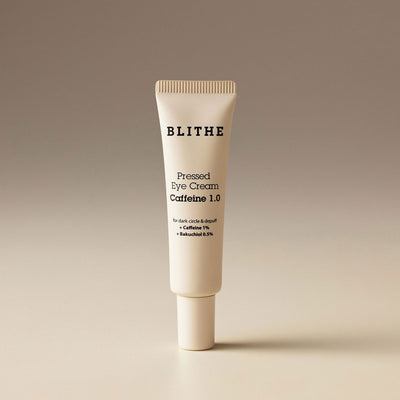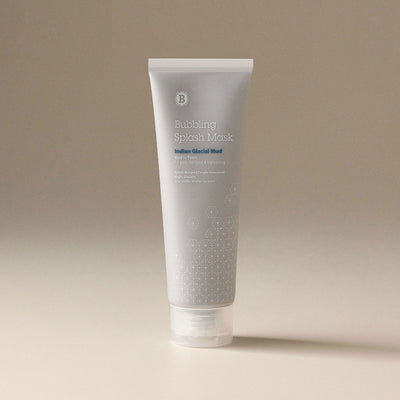As winter approaches, the drop in temperature, decrease in humidity, and increase in indoor heating can take a toll on our skin, leaving it dry, flaky, and vulnerable to irritation. To keep your complexion soft, hydrated, and glowing all season long, it’s essential to adjust your skincare routine to address the unique challenges that winter weather brings. Incorporating specific skincare ingredients can make all the difference, creating a resilient barrier against the harsh elements.
In this blog post, we’ll walk you through the must-have ingredients to include in your winter skincare routine to protect and nourish your skin, ensuring it stays healthy and radiant even in the coldest months.
1. Hyaluronic Acid : The Hydration Hero
Hyaluronic acid is a powerhouse humectant that draws moisture from the environment and locks it into your skin. This ingredient is a must-have for winter skincare because it has the ability to hold up to 1,000 times its weight in water, making it incredibly effective at keeping your skin plump and hydrated even in dry, cold conditions.

When using hyaluronic acid, it’s best to apply it to slightly damp skin to help it draw in moisture. Follow up with a moisturizer to seal it in. This ensures that your skin stays hydrated for longer, minimizing the risk of dehydration and flakiness.
How to Use : Look for hyaluronic acid in serums, toners, or hydrating essences and apply it as one of your first layers after cleansing.
2.Ceramides: Barrier Boosters
Ceramides are lipids (fats) that occur naturally in the skin and are crucial for maintaining a healthy skin barrier. They work by holding skin cells together, forming a protective layer that keeps moisture in and irritants out. In winter, our skin’s ceramide levels can become depleted due to environmental stressors like cold wind and dry indoor heating, making our skin more susceptible to dryness and irritation.
By adding ceramide-infused products to your routine, you help to strengthen your skin’s natural barrier, allowing it to retain moisture and stay resilient against harsh winter elements. Ceramides are particularly beneficial for those with dry or sensitive skin, as they provide long-lasting hydration and support skin recovery.
How to Use : Opt for a moisturizer or serum rich in ceramides as a key step in your nighttime routine to lock in hydration and support your skin’s protective barrier.

3. Squalane: A Lightweight Oil with Big Benefits
Squalane is a lightweight, non-comedogenic oil that mimics your skin’s natural oils, making it perfect for maintaining moisture without feeling heavy or greasy. It is an excellent choice for winter as it provides deep hydration, softens the skin, and helps prevent moisture loss, all while being gentle enough for sensitive or acne-prone skin.
Unlike some heavier oils, squalane is absorbed quickly and doesn’t leave a residue, making it an ideal option for both morning and evening routines. It’s a versatile ingredient that works well with other skincare products, enhancing their hydrating effects.
How to Use : Apply a few drops of squalane oil as the last step in your routine at night or after your moisturizer in the morning to seal in hydration.
4. Aloe Vera : A Calming and Soothing Hydrator
Aloe vera is well-known for its soothing and hydrating properties, making it an essential ingredient in winter skincare. It not only hydrates but also helps calm irritated or inflamed skin. Cold weather can exacerbate redness and sensitivity, so adding a product with aloe vera to your routine can help reduce these effects.

Aloe vera gel contains polysaccharides, which create a film on the skin to help retain moisture. This ingredient is also rich in antioxidants, making it a great option for protecting the skin from environmental stressors and promoting healing.
How to Use : Aloe vera is often found in toners, essences, and moisturizers. Apply it in the early stages of your routine to allow its hydrating and calming properties to prep your skin.
5. Centella Asiatica: Healing and Anti-Inflammatory
Centella asiatica, also known as “cica” or “tiger grass,” is a powerful ingredient for healing and strengthening the skin. It has anti-inflammatory and antioxidant properties that soothe irritation, making it particularly beneficial for sensitive or compromised skin in winter. Centella asiatica helps repair the skin barrier and is effective in reducing redness and irritation from cold, dry air.
This ingredient is also excellent for boosting collagen production, which helps maintain skin elasticity and resilience. Centella asiatica is a must-have in your winter skincare routine if you experience redness, sensitivity, or dry patches.

How to Use : Centella asiatica can be found in serums, creams, and masks. Use it as a targeted treatment for inflamed areas or as an overall layer in your routine for extra protection and healing.
6. Glycerin: A Powerful Humectant for Long-Lasting Hydration
Glycerin is another effective humectant that attracts water to the skin’s surface, similar to hyaluronic acid. It’s particularly beneficial in winter because it helps maintain hydration and prevents moisture from evaporating, keeping your skin soft and supple. Glycerin is compatible with almost all skin types and is often found in creams, lotions, and serums.
In colder months, when your skin is more prone to dehydration, glycerin acts as a moisture magnet, helping to lock in hydration and improve the skin’s overall texture.
How to Use : Apply glycerin-based products after cleansing and toning to maximize hydration, and seal it in with a moisturizer for long-lasting effects.
7. Vitamin E: Antioxidant Protection and Moisture Retention
Vitamin E is an antioxidant that provides powerful protection against environmental damage while also helping to lock in moisture. This ingredient is ideal for winter skincare as it defends against free radicals caused by pollution and UV exposure, which are still present during colder months. Vitamin E is also a natural emollient, which helps keep skin soft and hydrated.
In addition to its moisturizing benefits, vitamin E supports skin repair, making it a great choice for those dealing with winter dryness or irritation. It’s commonly found in moisturizers, oils, and serums.
How to Use : Incorporate vitamin E in a moisturizer or facial oil to help strengthen the skin’s barrier and keep it protected from environmental stressors.
8. Lactic Acid : Gentle Exfoliation for Smooth, Radiant Skin
Lactic acid is an alpha-hydroxy acid (AHA) that gently exfoliates the skin, promoting cell turnover without the harshness of more potent acids. In winter, dead skin cells can build up due to dryness, leading to a dull complexion. Lactic acid helps remove this layer, allowing moisturizers and other treatments to penetrate more effectively.

This ingredient not only exfoliates but also has moisturizing properties, making it ideal for winter use. By keeping your skin smooth and removing dead cells, lactic acid ensures your complexion stays radiant and fresh even in colder weather.
How to Use : Use a serum or cream with lactic acid 1-2 times a week, preferably at night, to exfoliate gently and prevent buildup.
Tips for a Winter-Ready Skincare Routine
Now that we’ve covered the essential ingredients, here are some additional tips for a winter-ready skincare routine

- Layer Wisely : Layer your skincare products from lightest to heaviest. Start with hydrating serums and essences, followed by heavier creams and oils to seal in moisture.
- Don’t Skip Sunscreen : UV rays are present year-round, so sunscreen is essential even in winter. Choose a broad-spectrum SPF 30 or higher.
- Use a Humidifier : Indoor heating can be incredibly drying. A humidifier helps add moisture to the air, preventing your skin from becoming overly dry.
- Avoid Hot Showers : While it’s tempting to warm up with a hot shower, the high temperature can strip your skin of essential oils, leading to dryness. Opt for lukewarm water and limit your shower time.
- Pamper with Masks : Treat your skin to a weekly hydrating mask, especially those with ingredients like hyaluronic acid, aloe vera, and centella asiatica, to replenish moisture and soothe the skin.
Embrace Winter with Confidence
With the right ingredients and a few adjustments to your skincare routine, you can keep your skin glowing, hydrated, and healthy throughout the winter season. From hyaluronic acid to centella asiatica, these ingredients provide a strong defense against dryness, sensitivity, and the cold.

Winter skin prep is all about building resilience and nourishing your skin, so it can face the challenges of colder months with confidence. Embrace the season with a well-equipped routine, and enjoy the beauty of winter without compromising your skin’s health and radiance!









Leave a comment